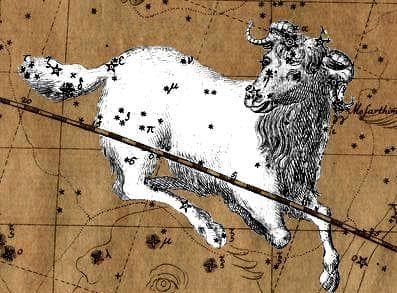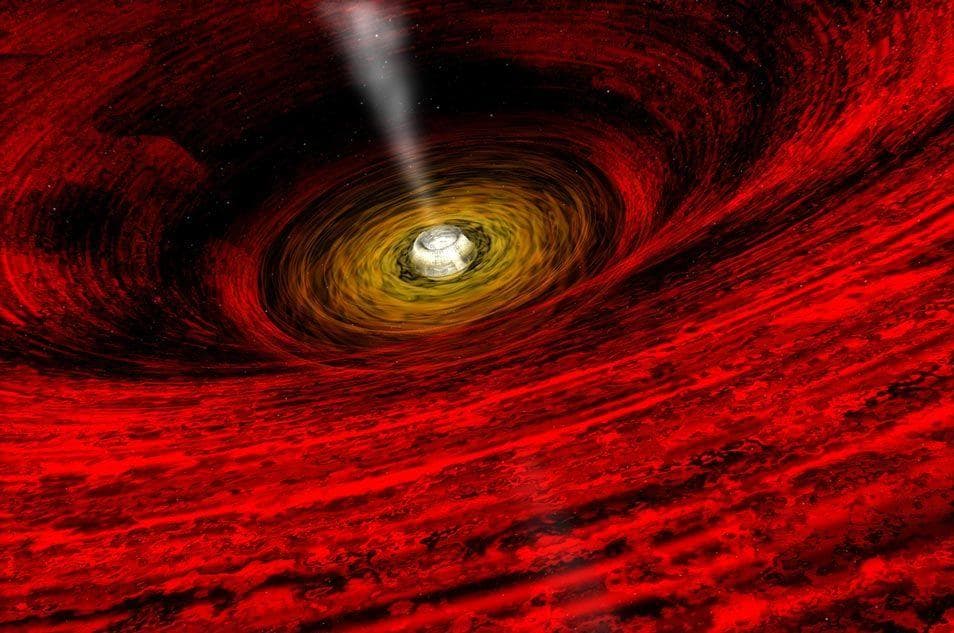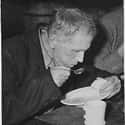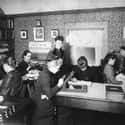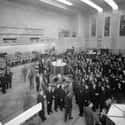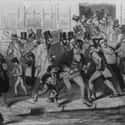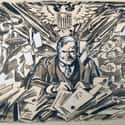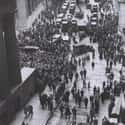(#1) A Prominent Financier Shot Himself
The stereotypical depiction of Black Tuesday is stock brokers lining up to jump to their deaths from office buildings in financial despair. Of course, this didn't actually happen. Suicides did spike in the wake of the crash, and some of those people did leap from buildings, but not all of that was tied directly to the crash itself. In reality, the suicide rate had been rising throughout the 1920s; it didn't suddenly explode with the economic crisis, and certainly not in the middle of a single week.
One very direct death caused by Black Tuesday, however, was that of J.J. Riordan. A New York banker, Riordan had lost all of his personal savings in the crash and took his own life shortly thereafter. He didn't jump from a building, either. He shot himself with a pistol.
(#10) The Harvard Economic Society And Others Believed That A Depression Was Not Possible
Even after Black Tuesday was over and the staggering amount of financial ruin had been fully tallied, many failed to grasp its true significance. Countless financial experts came out in the wake of the event to boldly state that it wasn't a major problem for concern. The Harvard Economic Society published a statement in early 1930 saying that a large economic depression was “impossible." The head of the Continental Bank of Chicago predicted that the crash would have little to no effect on business. Spoiler alert: he was wrong.
(#4) Markets Crashed All Around The World
The stock market crash and Great Depression are often thought of as purely American events, but that’s not the case. In fact, in the wake of World War I, the world had become highly dependent on the American economy, and when the US went down, other nations did, too. Black Tuesday precipitated other stock market crashes around the world in a chain of events that helped plunge most of the globe into economic depression. Canada was hit particularly hard, with stock market crashes occurring in Montreal and Toronto shortly after Black Tuesday.
(#9) November 13, 1929: The Stock Market Finally Bottomed Out
Black Tuesday has gone down in history, but it was far from a one-day event. The major crash of October 29, 1929, was preceded by an entire week of rapid stock selling, and it was followed by outright financial panic. Sales of stocks, and the subsequent tanking of the stock market, clawed back a decade of growth on Wall Street. The stock market finally bottomed out completely on November 13, 1929, more than two weeks after Black Tuesday. By that point, the market had fallen to less than half the value it had in September of 1929.
(#11) William Randolph Hearst Called Out President Hoover
Herbert Hoover had been President of the United States for less than a year when Black Tuesday hit. It was not a fantastic start to his presidency. To make matters worse, Hoover was a little slow to react, allowing newspaper publisher and Citizen Kane inspiration William Randolph Hearst to publish an “open letter” to Hoover outlining how Hearst would go about fixing the economy. Hoover’s quickest action was convening a conference to create work projects to kickstart employment, but he would ultimately be unsuccessful at preventing his country from falling into the Great Depression.
(#6) An Immediate, Impromptu Purchasing Freeze Took Effect
It wasn't just the banking industry that was affected by the Stock Market crash; other industries would find themselves feeling the sting of Black Tuesday within short order. Almost immediately, and completely without organization or planning, the people of the United States stopped buying things. It wasn't to protest or to make a point about anything specific; rather, in the wake of the crash, people made the prudent choice to save the money they had left. Unfortunately, the 1920s had seen nationwide spending at an all-time high, and the sharp transition to moderation caused many businesses, both small and large, to close up shop within a few months.
New Random Displays Display All By Ranking
About This Tool
On October 29, 1929, everyone in the New York Stock Exchange was caught in a whirlpool of selling stocks. The stock index plummeted by an average of 40 percentage points from its previous high of 363. Thousands of Americans watched their life savings disappear in a few days. This is the darkest day in the history of American securities, and it is the most influential and most serious economic event in the history of the United States, its impact has spread to the entire world.
In the speculative frenzy of the 1920s, the outrageous Florida estate bubble was broken. After this Black Tuesday stock market crash, thousands of people committed suicide by jumping off the building. Since then, the United States and the world have entered an economic depression period. The random tool reminds 13 real things that happened after Black Tuesday.
Our data comes from Ranker, If you want to participate in the ranking of items displayed on this page, please click here.

